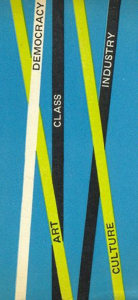Mapping the Concept of Culture in the British Empire, 1860–1960
Jarrett Moran, History
Faculty Advisor: Timothy Alborn

Between the 1860s and the 1960s in Britain, Matthew Arnold’s concept of culture functioned as a belief in an elevated, universal vantage point that would transcend, or at least paper over, political divisions between religions, between classes, between men and women, and between metropole and colony. The discourse of Arnoldian culture was much more widespread and persistent than scholars have recognized; it was shared by liberals and conservatives, by working class reformers, and by women, and it appeared throughout the empire, in Ireland, India, Canada, Australia, and the Caribbean. Like Christianity in Britain, Arnoldian culture declined abruptly in the 1960s. The British left and Cultural Studies abandoned it for more inclusive ideas of culture and identity, leaving Arnoldian culture to conservatives and communitarians and setting the terrain for the subsequent “culture wars” in the US and UK.
At the New Media Lab, I will be using topic modeling to map this discourse of culture geographically and temporally, as well as thinking more generally about the methodological questions involved in using Digital Humanities methods in conceptual history research. The kinds of questions that I will be asking include: During what period of time was culture as a discourse particularly prominent in periodicals and newspapers? Which kinds of publications and viewpoints were using “culture talk” during this period, and how did the uses of culture drift over time? In what ways did the discourse of culture vary across Britain and its empire?